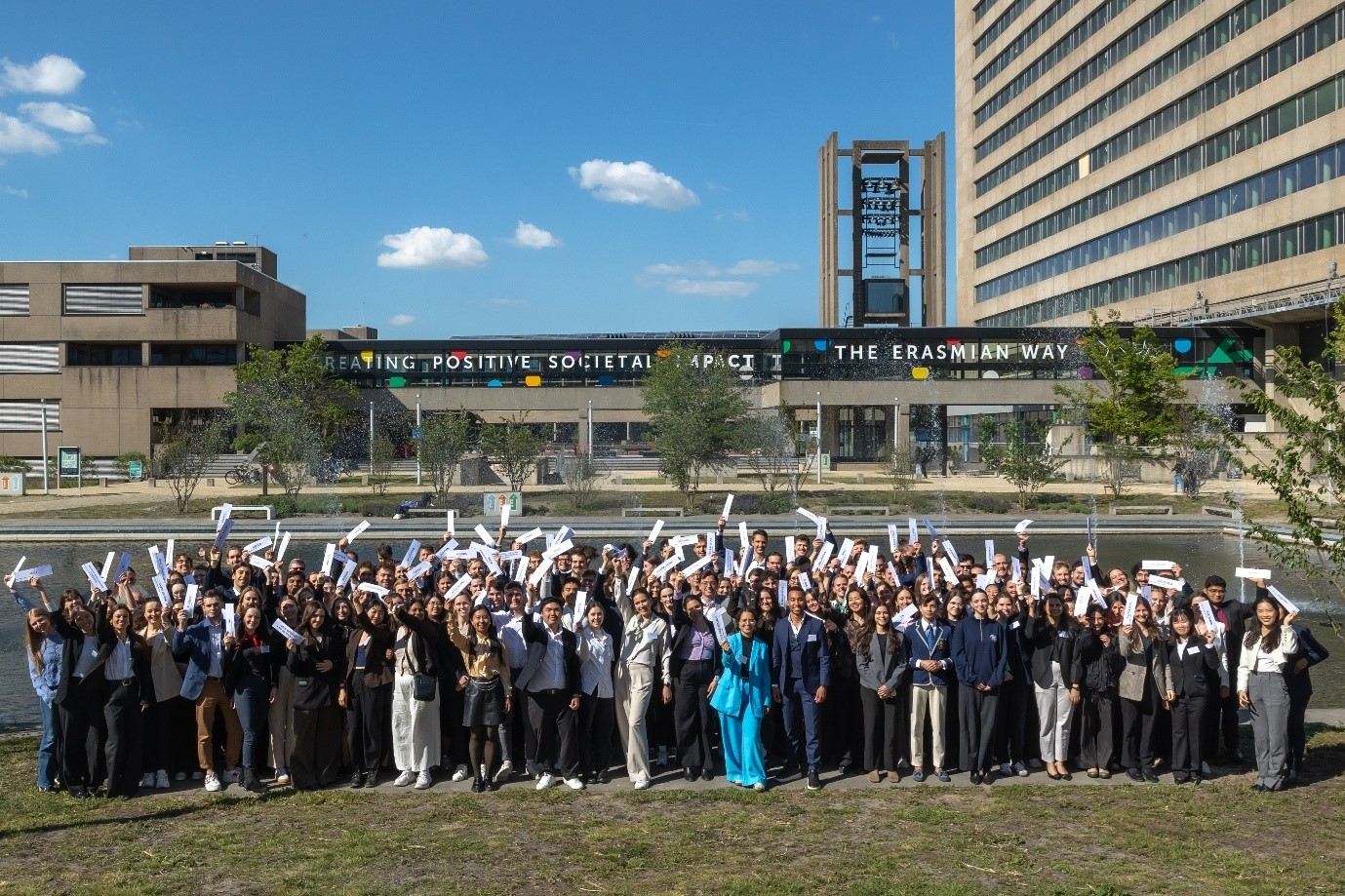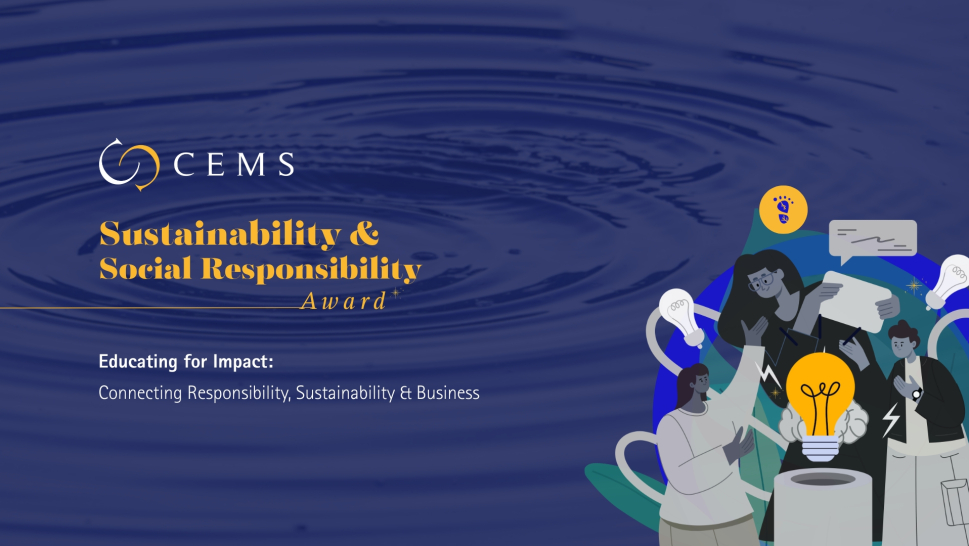Bringing Ethics and Sustainability to the Heart of Business Education
In today’s global business environment, discussions on sustainability and social responsibility have become mandatory rather than optional. These principles form the ethical foundation of contemporary business education, particularly within CEMS, where upcoming leaders are prepared to create a fairer and more sustainable world.
Through the new CEMS Sustainability & Social Responsibility Award, these two dimensions of responsible leadership come together - recognising schools that make sustainability and ethics part of everyday learning.
“I am delighted to reflect on the launch of the new CEMS Sustainability Award, celebrating CEMS schools which most demonstrate outstanding contributions to a more responsible and sustainable future. This award highlights the vital role that our community plays in addressing today’s most pressing global challenges.”
Different Paths, Shared Purpose: How Sustainability and Responsibility Evolved
The concept of corporate social responsibility (CSR) emerged in the 1950s, focusing on a company’s moral obligations to its employees, communities, and stakeholders. It involved acting ethically by providing fair wages, ensuring safe working environments, engaging with local communities, and maintaining transparency. CSR introduced the idea that businesses are responsible not just to shareholders but also to society as a whole, redefining what it means to be a responsible corporate citizen.
Sustainability, on the other hand, gained prominence in the 1980s amid increasing environmental awareness. It emphasized balancing needs—how businesses could fulfill current demands without jeopardizing the ability of future generations to do the same. This outlook broadened the discussion to include issues like climate change, resource conservation, waste reduction, and eco-friendly manufacturing. Sustainability encouraged companies to look beyond quarterly profits and recognize that long-term success relies on the health of our planet and ecosystems.
While their origins differ, sustainability and social responsibility share a vision: aligning business with the greater good. Their boundaries have blurred, as responsible companies see human well-being and environmental care as linked. This evolving relationship is key to modern responsible management and is central to CEMS’s mission.

From Principles to Practice: CEMS’s Vision for Responsible Management
CEMS has historically been a leader in incorporating responsible management principles into business education. Its dedication to “advancing sustainable business solutions that benefit both humanity and our shared planet' closely aligns with the Principles for Responsible Management Education (PRME), a United Nations initiative that promotes integrating sustainability and responsibility into academic curricula.
In its 2023 PRME report, CEMS emphasized that responsible management education is about transforming mindsets, not just knowledge. The six PRME principles guide schools in preparing future leaders to balance economic, ethical, and sustainability goals. By aligning with the UN Global Compact and SDGs, CEMS promotes purpose-driven leadership.
CEMS’s curriculum embodies this vision through initiatives like the Global Citizenship Seminar and the acclaimed “Climate Change Strategy/Model UNFCCC” elective, enabling students to address real-world challenges, debate global issues, and develop sustainability strategies. CEMS schools are also encouraged to innovate with electives in stakeholder management, SDGs linkage, and partnerships with NGOs or social ventures to carry out sustainability projects.
The goal is clear: to ensure that every CEMS graduates not only understands the complexities of global business but also embodies the values of stewardship, equity, and responsibility.

Celebrating Impact Across the Alliance: The CEMS Sustainability and Responsibility Award
In recognition of the growing importance of these principles, CEMS has introduced the Sustainability and Responsibility Award — a new initiative to highlight and honor schools making exceptional contributions to sustainability and social responsibility within the CEMS network.
The objectives of the award are threefold:
- Fostering knowledge exchange among CEMS schools, allowing best practices to be shared and adapted across borders.
- Inspiring innovation by recognizing creative approaches to teaching and learning that amplify social and environmental awareness.
- Elevating visibility of sustainability and responsibility within the alliance, ensuring these values remain at the forefront of academic and institutional priorities.
Sustainability and social responsibility are interconnected goals. Sustainability keeps the planet habitable; social responsibility promotes justice and community growth. Together, they underpin ethical, long-term business success. The award recognizes the dual focus of responsible management, highlighting that progress requires social and environmental integration. It honors schools that embed these themes in curricula and activities—promoting change, community, and responsible leadership. The award also motivates schools to deepen their commitments and innovate in teaching, research, and responsibility. By showcasing initiatives like climate programs, stakeholder dialogues, and community partnerships, CEMS affirms its leadership in transformative education.
The recipients of the inaugural CEMS Sustainability & Social Responsibility Award will be revealed in December 2025, during the CEMS Annual Events in Rio de Janeiro.
Discover more about the CEMS Sustainability & Social Responsibility Award.




